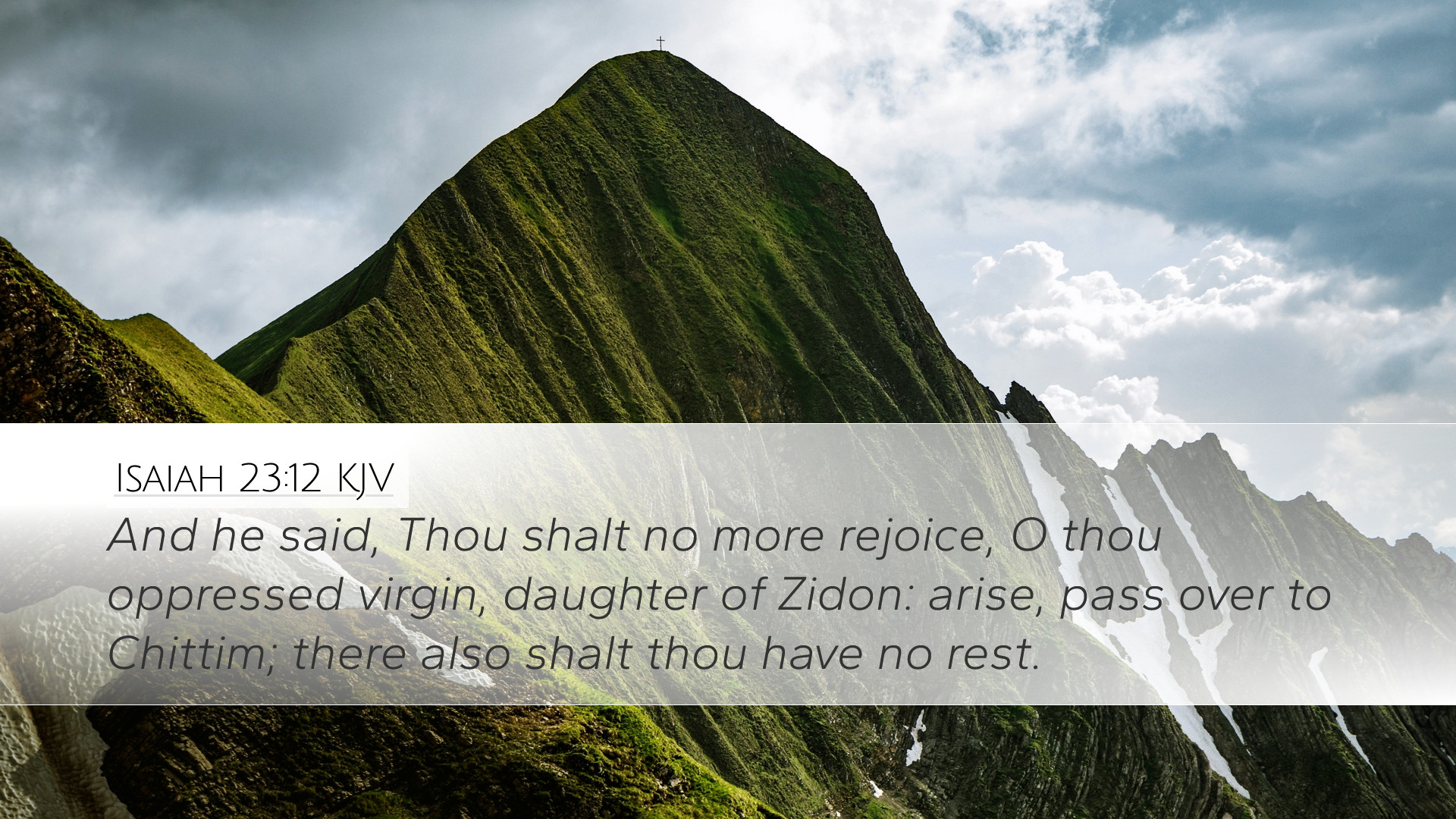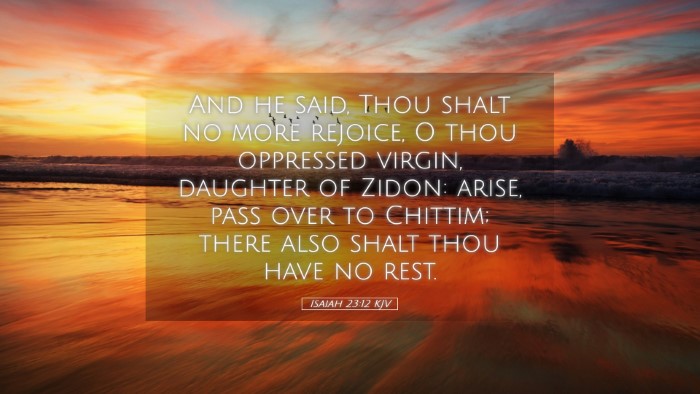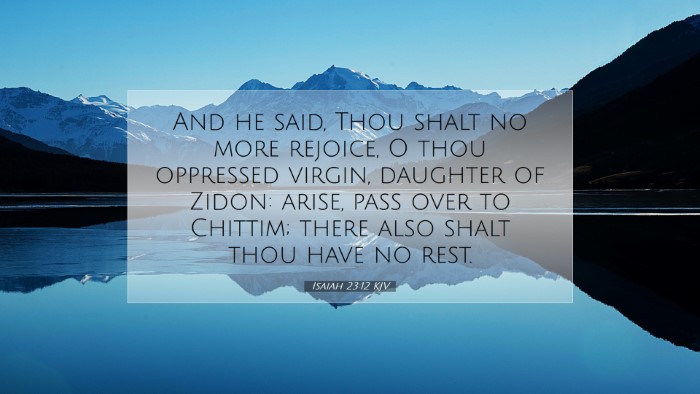Commentary on Isaiah 23:12
Isaiah 23:12 states: "And he said, Thou shalt no more rejoice, O thou oppressed virgin, daughter of Zidon: arise, pass over to Chittim; there also shalt thou have no rest."
Contextual Background
The book of Isaiah is known for its rich theological insights and prophetic declarations. In this particular chapter, Isaiah addresses the fate of Tyre, a prominent city in ancient Phoenicia, which was notorious for its wealth and maritime power. The warnings provided serve as a significant backdrop to the Israelite’s understanding of divine judgment and restoration.
Commentary Insights
Matthew Henry’s Perspective
Matthew Henry emphasizes the concept of divine retribution in his commentary, pointing to the "oppressed virgin, daughter of Zidon." He interprets this imagery as a reference to Tyre's pride and its eventual humility through God's judgment. The term "oppressed virgin" reflects the desolation that Tyre would face and highlights the fall from a place of esteem to one of despair.
Henry remarks that Tyre's rejoicing would cease, as their state would transition from one of prosperity to turmoil. He clarifies the significance of the instruction to "pass over to Chittim," noting that Chittim (or Cyprus) represents another destination of despair for Tyre, suggesting a cyclical nature of judgment experienced by cities that turned away from God.
Albert Barnes’ Thoughts
Albert Barnes offers an analytical approach to the verse, highlighting the implications of Tyre’s downfall. He interprets the phrase "no more rejoice" as a definitive statement of judgment wherein Tyre, previously a source of trade and influence, would find itself in a position of vulnerability. Barnes connects this prophecy with the larger prophetic tradition that emphasizes accountability for one’s actions, especially among nations.
In discussing "Chittim," Barnes explains that it represents a place that historically signifies a land of trade and refuge. Yet, the rest promised there would also be elusive, linking the theme of divine judgment with the prophetic message that true rest can only be found in adhering to God's statutes. This situation reflects a broader theological point about the transient nature of earthly power and prosperity.
Adam Clarke’s Commentary
Adam Clarke provides a detailed exegesis of the text, highlighting the literary elements Isaiah employs. Clarke describes the imagery of Tyre as a "virgin" — a metaphoric reference designed to evoke notions of purity and vulnerability. He articulates how this characterization indicates the fallacy of Tyre's false security and the imminent judgment they would face.
Clarke further analyses the Hebrew term used for "arise" and "pass over," suggesting that this represents a forced displacement rather than a voluntary journey. Tyre's movement toward Chittim is not merely a change of scenery but rather a symbol of a fateful retreat in the wake of calamity. This serve as a reminder of God's sovereignty over nations and the impermanence of human achievements.
Theological Reflections
-
The Sovereignty of God: The juxtaposition in this verse displays God's unchallenged authority over nations. Tyre may have dominated the trade routes and boasted of its power, yet the prophetic discourse reminds readers of the ultimate oversight by the Divine, which invites reflection on the nations today.
-
The Illusion of Security: The metaphor of Tyre as the "oppressed virgin" serves to illustrate the dangers of misplaced trust in external circumstances. It invites scholars and pastors to consider where security is wrongly sourced in their contexts today, emphasizing the need for reliance on God rather than temporal success.
-
Hope in Judgment: Ultimately, while the text starkly depicts futility in Tyre's rejoicing and the cha -otic reality that follows, it inevitably leads to a discussion on restoration and reconciliation. God's judgment is not merely punitive; it serves a restorative purpose, challenging believers to seek genuine repentance and closeness with God.
Conclusion
Isaiah 23:12 offers profound insights into the nature of divine judgment and the fleeting nature of human pride. Through the wisdom of Matthew Henry, Albert Barnes, and Adam Clarke, one gains a comprehensive appreciation for the text. This verse serves as a vital reminder for scholars, theologians, and pastors alike about the perils of pride, the consequences of turning from God, and the steadfast hope found in true repentance and divine grace.


